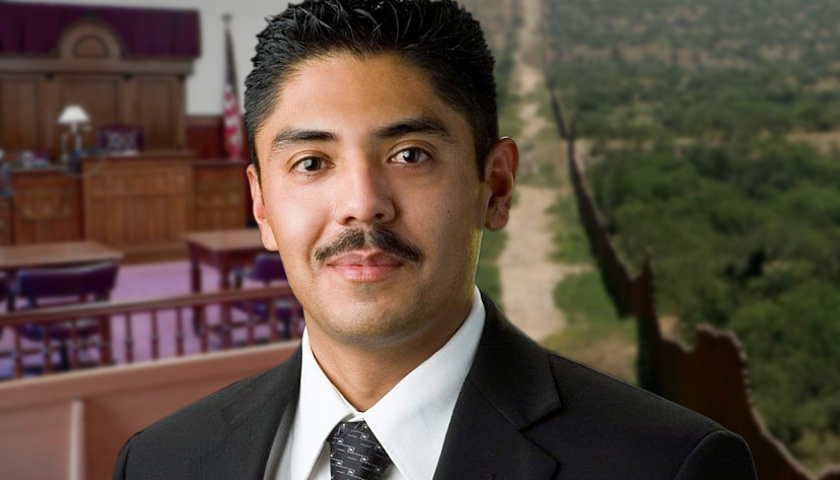California, New York, Florida, New Jersey and Connecticut all provide the in-state tuition benefit for illegal aliens in their states and all permit illegal aliens who graduate from law school, to apply for and obtain a license to practice law.
Last week Connecticut became the fifth state to change its rules and license eligible illegal aliens to practice law. Prior to the rule change, Connecticut required lawyers to either be a U.S. citizen or “an alien lawfully residing in the United States.” The rule now includes anyone “authorized to work lawfully in the United States.”
The rule change was proposed by Denia Perez, a grantee of Obama’s unconstitutional DACA (Deferred Action for Childhood Arrivals) administrative amnesty program.
Illegal aliens trying to get a license to practice could potentially have an easy path in Tennessee, especially as explained below, if proponents of the in-state tuition bill are successful during the next legislative session. State Sen. Todd Gardenhire (R-Chattanooga) and State Rep. Mark White (R-Memphis) who last session sponsored the bill for its fourth run, are likely to try again in 2019.
Unlike Connecticut and California before they changed their rules, Tennessee’s rules about who is eligible to be granted a law license, include no reference to citizenship or immigration status.
California was the first state to allow illegal aliens to take the lawyer’s bar exam and the California Supreme Court was the first to allow illegal aliens to obtain a license to practice law.
In 2014, the California Supreme Court held that Sergio Garcia, smuggled into the country as a baby by two U.S. citizens to join his father himself an illegal alien employed as an almond picker, could get a license to practice law in the state.
Prior to the court’s decision, a lawyer had to either be a U.S. or naturalized citizen to be admitted to practice law.
When Garcia was 9 years old, his parents took him and his five other siblings back to Mexico because “his parents thought it was important for their children to experience Mexican culture.” Eight years later, when Garcia was 17, he joined his parents and illegally crossed the border back into the U.S.
The New York Daily News story reports that Garcia’s father became a citizen, while he and his mother obtained green card holder status. Doing the math based on Garcia’s stated age when the story was published makes it highly probable that the drastic change in his family’s immigration status was a result of President Reagan’s 1986 amnesty that legalized approximately 2.7 million illegal aliens including 1.3 million agricultural workers.
Regardless of his changed immigration status, Sergio Garcia’s California case is especially important for Tennessee.
Garcia’s lawsuit that got him a law license was based on a challenge to the 1996 federal law which in the absence of a state statute saying otherwise, “bars illegal immigrants from obtaining professional licenses from government agencies or with the use of public funds.”
Tennessee’s “Eligibility Verification for Entitlements Act” is tied to the same federal law implicated by the Garcia case. It is also the Tennessee law that puts in-state tuition into the category of a public benefit. This is the same law that in-state tuition for illegal alien proponents are trying to redefine by removing in-state tuition from the definition of a state or public benefit.
According to Tennessee’s Attorney General, in order to award the in-state tuition to illegal aliens, the General Assembly must redefine Tennessee’s public benefits law by “enact[ing] legislation expressly making unlawful aliens eligible for public benefits, including in-state tuition.” Such a move would open legislating access to other public benefits by illegal aliens such as the Tennessee Promise last dollar scholarship and access to professional licenses.
Surprisingly, Garcia’s lawsuit was opposed by Obama’s Department of Justice which took the position that:
federal law prohibits giving a public benefit, such as a [lawyer’s] bar license, to an ‘unlawfully present alien’ since the relevant statute was ‘plainly designed to preclude undocumented aliens from receiving commercial and professional licenses issued by states and the federal government.’
The American Bar Association (ABA), a voluntary trade association for lawyers, supports illegal aliens taking the bar exam which all law school graduates must pass before they are eligible to apply for a law license. During its annual meeting last year, the ABA delegates passed a resolution supporting illegal aliens being allowed to take state bar exams so they could then be eligible for a professional license – “the American Bar Association supports the principle that bar admission should not be denied based solely on immigration status.”
The Tennessee Star contacted the Tennessee Board of Law Examiners (BLE) to find out whether an “undocumented immigrant” who graduated from a law school recognized by the BLE would be eligible to sit for the Tennessee bar exam or whether there is any requirement for an applicant to provide information regarding their citizenship or immigration status.
BLE’s Executive Director Lisa Perlen promptly responded – “to my knowledge, this issue has not been before the Board of Law Examiners. It is the Board’s stated policy to not provide advisory opinions.”
In Tennessee, admission to practice law and the issuance of law licenses is controlled by the state Supreme Court pursuant to its Rule 7, “Licensing of Attorneys.”
Ms. Perlen confirmed that Rule 7 does not address citizenship. Unlike rules from other states, Tennessee’s rule makes no reference to immigration status as a factor in determining whether an individual can obtain a license to practice law in Tennessee.
When lawyers are admitted to practice law in Tennessee, they must complete the following oath that strongly suggests at a minimum, upholding the rule of law:
I, _____________ do solemnly swear or affirm that I will
support the Constitution of the United States and the State of Tennessee, and that I will truly and honestly demean myself in the practice of my profession to the best of my skill and abilities, so help me God.
Illegal aliens who have won the right to become licensed practicing attorneys, say they want to help other illegal aliens. Cesar Vargas who founded the Dream Action Coalition in New York, won his case in 2015 – “[a]s a lawyer, I’m going to have more power to help people to confront and fix broken legal systems that our community faces every day.”
By “our community” Vargas is likely referring to other “DREAMERS” who this year demanded a “clean DREAM Act” that would legalize several million illegal aliens.
Another illegal alien and California immigration lawyer, Lizbeth Mateo briefly returned to Mexico as part of the “Bring Them Home Campaign” an initiative to try and demand re-entry to the U.S. for other illegal alien youths who had either been deported by the Obama administration or self-deported.
National Review’s Sapna Rampersaud sums up the growing trend of illegal aliens turned licensed lawyers – llegal Immigrants Can Now Defend the Laws They Break.





